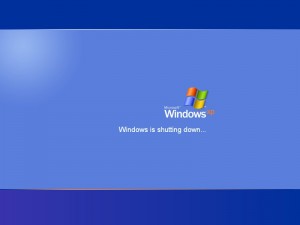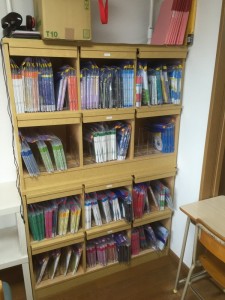Life, the Internet, and me
Still figuring this one out
Interestingly, I started writing this almost two years ago. It’s been sitting in the draft folder ever since.
“Earlier this year, I stopped using Facebook. This week, I pruned my email and RSS subscriptions, deleting some of the more active lists. Today, I chose not to respond to an angry person on Twitter.
I feel like my relationship with the Internet (internet?) is evolving, sometimes in the right direction.”
Well, that was then and this is now, and my improved relationship with the internet didn’t last.
Last week I again felt the need to cut back on Facebook, after starting to use it again last year. For me, Facebook is something that slowly increases over time, taking more and more of my attention.
Last time I got rid of it I deleted all my friends. This time, thanks to its expanded features, I just unfollowed them.
What that means is that I don’t see anyone else’s posts, but they can see mine. I can see their comments on my posts, but nothing else.
It’s a way of turning Facebook into a broadcast rather than a source of new content. Another way of looking at it would be in terms of being a free rider. I get to share my stuff with the world but never see what anyone else writes 🙂
In some ways it’s similar to browsing the web with an ad blocker.
Either way, it seems to be working. I check Facebook less now, and when I do there is no new content to see so I just close the browser tab again. I’m hoping over time the urge to check will also go down.
Why this sudden desire to regain my time? I have some projects I want to finish.
The Academy Program
English Program for Junior and Senior High School Students
For the last two years we have been developing the Cambridge Academy, an academic English program for junior and senior high school students in a private English school setting.
The program consists of two strands: input and output.
Input classes are based on extensive reading and listening. Students spend most of their time reading/listening to graded materials at their level. Students also learn vocabulary, do shadowing, or write short reactions to books (at higher levels).
Output classes are focused on oral and written production. Students work in pairs to develop their speaking fluency, and do intensive reading and listening exercises to encounter and practice language. Vocabulary and grammar is chosen to complement public junior high school textbooks.
We are now exploring ways to license and share the Academy program with other schools. Academy partner schools will receive training, teaching and administration manuals, and materials, and have the option to purchase starter packs of readers (labelled and organized into packs so they can be used straight out of the box).
Many English schools struggle with retaining and recruiting junior and senior high school students. The Academy program provides practical, academically focused classes that are easy to run, enjoyable for teachers and students, and easy to explain to parents.
If you are interested in learning more or would like to be considered as a test partner please get in touch via email or a comment below.
PRESENTATION: Children’s English Education @ Happonmatsu Shimin Centre
I did a presentation today for parents (mothers) of young children today on the topic of English education for children. The presentation was in Japanese, and I had a lovely group of people who seemed interested and asked good questions.
Here are my slides, cryptic as ever: 160706 Children Learning English
The questions at the end were submitted by participants prior to the event, which was a really nice touch as it gave me a chance to get my answers ready 🙂
Let me know if anything is unclear in the comments below!
A Smorgasbord of Updates
Life has been very busy in the almost two months since the last post. Here are a number of small news items.
1. Extensive Reading Outreach
I am working with another high school in Sendai, mainly providing advice on which books to buy and how to encourage students to read. The teachers and librarian there are really enthusiastic and open to suggestions, so it’s been a lot of fun so far. Hoping to see their reading program develop.
2. University Classes
Continued to develop classes here at Tohoku University, particularly the new ‘high level’ ones.
3. PELLT Expansion
We’ve made some new pages on PELLT, with more to come soon.
4. Cambridge Academy Development
Some progress, including training part-timers to take the ER classes, getting more books, and working on the fluency program in the output classes.
5. RetireJapan
Lots of new content on the RetireJapan site, and featured speaker at JALT national.
Hope to have some more posts for you soon 🙂
Cambridge Discovery Interactive Readers
Great news
Last year I took another look at the excellent Cambridge Discovery Interactive Readers (full review coming soon) and was disappointed to see that a lot of the content was set up to be accessible to a single user for a limited time. It seems the publisher assumes they will be bought by individuals and used as a kind of textbook.
Of course, this is very different to how ER program administrators look at books.
For me, I am not interested in the interactive questions or even videos (although it would be nice if they were on a public site accessible by anyone), but I am very interested in having the audio files available so I can make CDs for our students.
I reached out to our local Cambridge University Press rep, who is a very thorough and approachable guy, and told him I was very interested in having access to the audio files. He asked some questions about my teaching situation, I answered them, and he said he’d talk to the main office.
I assumed that would be the end of it. Few publishers understand ER as practiced in Japan (particularly with regards to the importance of word counts, etc.) and I wasn’t expecting much more than ‘sorry, we can’t do anything at this time’.
This morning I was proved completely wrong. I received an email telling me that the audio files for the first couple of levels are online and can be freely used by teachers and students. Apparently the rest of them will be going up soon.
This is great. I’m really happy to see a big publisher listen to local teachers and help them with their teaching situation. Big kudos to Cambridge for making this change -I hope you’ll check out the series and download the audio. Positive reinforcement works wonders!




